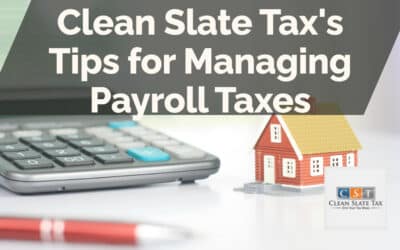Find IRS Debt Services And Solutions From A Trusted Tax Relief Agency
Get A Free IRS Debt Help Consultation By One Of Our Tax Resolution Professionals
Get Started With A Free Consultation
100% Money Back Guarantee
Fix IRS & State Tax Issues
No Big Upfront Fees
Only Licensed Tax Pros
What Are Tax Relief Services?
“Tax relief services” refer to companies or firms that assist individuals or businesses in obtaining relief from tax debt. Tax debt relief is a tax reduction an individual or business must pay. It can be obtained through various means, such as exemptions, credits, deductions, or other provisions in the tax code.
These services may help individuals and businesses identify potential relief opportunities, prepare and file necessary documents, negotiate with the tax authorities, and provide guidance and advice on managing tax-related issues. Tax debt relief services aim to help individuals and businesses pay less in taxes, either by taking advantage of provisions in the tax code or by negotiating with the tax authorities to reduce the amount of taxes owed.
Finding a Company
Choosing one with precision and expertise is important when looking for help with relief from tax debt. Top firms offer various services, including assistance with resolving tax debts, negotiating payment plans with the tax authorities, applying for tax exemptions or credits, and preparing and filing tax returns. Tax attorneys, certified public accountants (CPAs), enrolled agents, and other professionals with tax law and compliance expertise may provide these services.
Benefits of Tax Debt Relief Services
Tax debt relief services offer numerous benefits to taxpayers. They can help individuals and businesses navigate the complex world of taxes, providing aid in financial distress. Taxpayers can potentially reduce their tax burden by taking advantage of relief programs, exemptions, and credits. Tax specialists can assist in negotiating compromises with the tax authorities, ensuring that taxpayers receive the best possible outcome for their situation.
Choosing the Right Firm
When selecting a tax debt relief firm, it’s crucial to consider its reputation and its services. Look for firms with positive reviews and a track record of helping clients successfully. It’s also essential to understand the options and services available, such as tax assistance, consulting, and representation before the tax authorities. The right firm can make a significant difference in your financial situation, providing the expertise and support you need to navigate the complexities of the tax system.
Tax debt relief services play a vital role in helping individuals and businesses manage their tax obligations. By offering a range of services, from negotiating payment plans to applying for exemptions, these firms provide valuable support to taxpayers. When choosing a company, it’s important to select one that offers precision, expertise, and a comprehensive range of services to meet your specific needs.
Providing Tax Debt Solutions
Clean Slate Tax is a tax relief agency focused on relieving IRS debt. Trusted companies like Clean Slate Tax can help you reach an agreement with the IRS, like the IRS Fresh Start Program.
Most people have to pay tax on their earnings, but in many cases, you can receive tax resolution on contributions you pay. If you are a relief claimant, you qualify for relief or are exempt from income tax (have tax exemptions), you will save money with companies like Clean Slate Tax. Taxes generate a billion in income tax in fiscal year statistics, but not everyone must pay income tax or tax on corporate income. Learning about debt relief from interest and penalties is beneficial if you are concerned with tax debt or have questions about a payable tax resolution.
Tax Debt Relief Solutions
Tax debt relief means setting up a payment plan or negotiating a settlement with the IRS.

Tax Credit
A tax credit provides more savings for a tax entity than a tax deduction.

Tax Deductions
A tax deduction is where the taxable income of the taxpayer is reduced.

Tax Debt Forgiveness
A taxpayer has to settle their tax debts for a smaller percentage of the original liability.

Tax Exclusions
This will reduce the amount that the tax filer reports as the final gross income number.

Small Businesses
It is often the case that people try to rush through their tax returns instead of taking them to a professional.
Am I Eligible For Tax Debt Relief?
There is a broad spectrum of tax debt credits, tax incentives, tax deductions, and tax exemptions solutions that can provide relief on income, sales, sales, and use, accommodation, productive activities, and on expenses that arise through business, land ownership (property tax reimbursements from real estate), vehicle, or investments. You can achieve tax resolution according to specific criteria in the US. Tax debt relief companies can help.
Process
Free Consultation
Click Here to Get Started
Invest and Analyze
Invest and Analyze Tax Relief Solutions
Settlement & Resolution
Tax Settlement/Resolution Services
After the tax relief investigation, we review the advantages and disadvantages of each relief option you qualify for, the cost of pursuing each of those relief services options, and what our tax relief company professionals recommend you do. You decide! There is no obligation to continue. If you continue, we will complete your resolution and resolve your tax problems.
More Tax Tips
How to Handle Sales Tax Compliance for E-commerce Businesses
If you're operating an e-commerce business, managing sales tax can be complex. It throws a significant challenge even for the most experienced businesses owing to the vast variety of local,...
The Impact of International Tax Regulations on Global Businesses
The world of global business is multifaceted, often complex, and always evolving. The same can also be said for international tax regulations. Moreover, international tax regulations have a...
Clean Slate Tax’s Tips for Managing Payroll Taxes
Payroll taxes can present a maze of complexities that can leave many businesses in a lurch. However, understanding how to manage them is critical not only to remain on the right side of the law...




